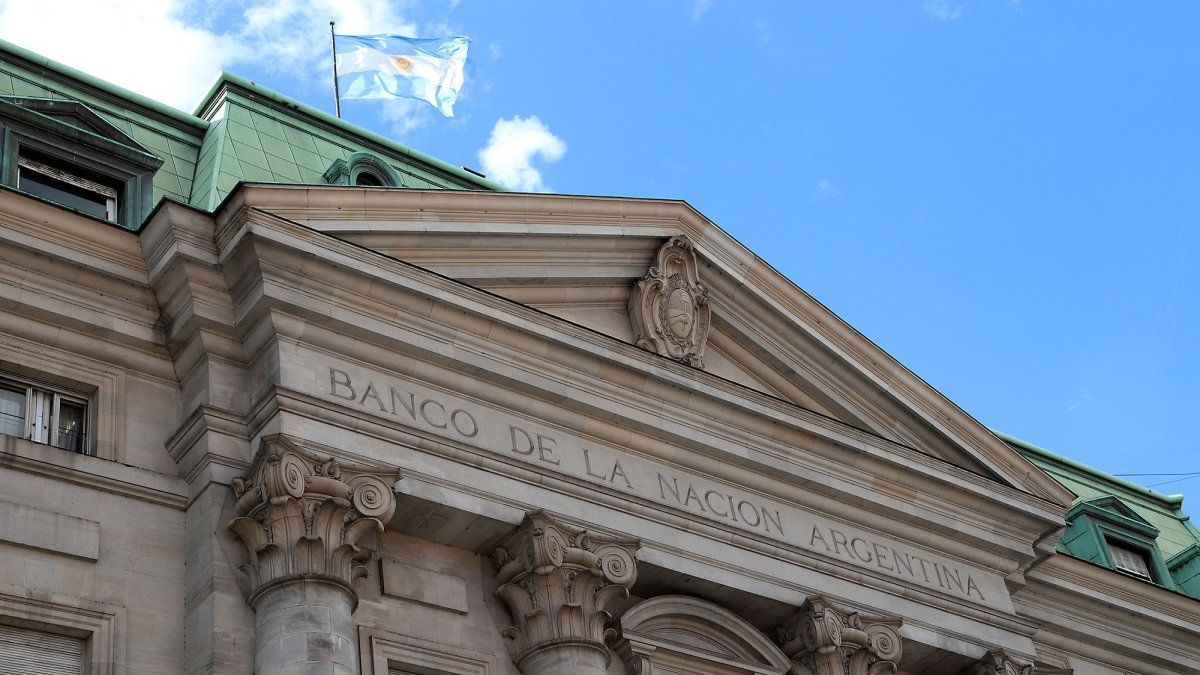Through the Bank of the Nation The Government is adding information before the Federal Justice to question some rates that municipalities throughout the country They charge companies with the same tax base as the Gross Income Tax.
The financial institution maintains a firm strategy of challenging judicially in each city in which municipal taxes are increased or in the provinces in which tax pressure is increased. It is worth remembering that it recently closed 9 branches in La Pampa after the Government increased its Gross Income.
Now it was the turn of a city in Córdoba. The Federal Court No. 3 of the provincial capital, headed by Miguel Vaca Narvaja, granted the precautionary measure requested by the entity to suspend the fees charged by the Municipality of Cruz del Eje.
“The Bank’s arguments are based on the fact that the ordinance that supports these rates is unconstitutional, that they impose a disproportionate municipal tax on a tax base that exceeds the activity that the entity has in that location and that the final effect is an increase in credit costs,” Banco Nación reported in a press release.
Fifty municipalities from where BNA can be withdrawn
According to the statement “lThe town of Cruz del Eje is part of the ranking – carried out by Banco Nación – that groups the 50 most burdensome municipalities in the country in order of the service rates they charge.
“In that group “Municipal taxes equal the payroll that the Bank has in each location and put its physical presence at risk.”warned the Bank.
As the statement recalls, the entity “It has been obtaining similar precautionary measures in different jurisdictions of the country, such as the case of General Deheza, the city of Córdoba, Jesús María, La Plata and Bariloche.”
“This precautionary measure has a period of 90 days or the substantive resolution of the matter. We celebrate the understanding of Justice to open an instance of rationality and resolve the obstacle that these municipal rates represent to achieve the development of credit in the country, especially the mortgage,” highlighted the president of Banco Nación, Daniel Tillard.
The case of Bariloche
Recently the Federal Court of San Carlos de Bariloche, headed by Gustavo Villanueva, granted the precautionary measure requested by Banco Nación to suspend the increase in the Safety and Hygiene Rate provided for in Tax Ordinance No. 2374, under the argument that “the amount demanded is exorbitant, disproportionate and confiscatory.”
In the grounds of the ruling it is stated that the rate “It lacks legitimate cause since it does not correspond to an effective, concrete and individualized provision of services. by the Municipality to the Bariloche branch.”
It is also established that the regulations are “manifestly unconstitutional” and warns about “the danger of delay, given the economic and potentially irreparable damage that would entail continuing to pay a rate that it considers disproportionate and confiscatory, which could even affect the continuity of its branch in the city.”
Background before Federal Justice
The claims against the so-called “Safety and Hygiene Rate” that Banco Nación has been carrying out for a couple of months serves as background for the national governmentwhich seeks to prevent subnational states from taking advantage of a future reduction in fiscal pressure at the national level to occupy that space.
In the case special of the “TISH” the provincial justice of Buenos Aires ruled a couple of years ago against the oil company Axion in a case against the municipality of Quilmes. The company questioned that a fixed amount was not used to calculate the rate, but rather an aliquot on the billing of the service stations in the territory.
It is to be remembered that Constitutionally, municipalities cannot charge rates based on people’s ability to pay, which constitutes a tax. They can only receive fees for a service provided, such as garbage collection service or public lighting. In the TISH it is not clear what service they provide, per case. However, the Buenos Aires Supreme Court ruled in favor of the commune under the argument that the rate was not excessive.
Lawyers specialized in tax issues consider that if the rulings in the provinces can be reversed, the way is to litigate in the federal courts, so that at some point, if necessary, the Supreme Court of the Nation has to issue it.
Source: Ambito
I am an author and journalist who has worked in the entertainment industry for over a decade. I currently work as a news editor at a major news website, and my focus is on covering the latest trends in entertainment. I also write occasional pieces for other outlets, and have authored two books about the entertainment industry.




